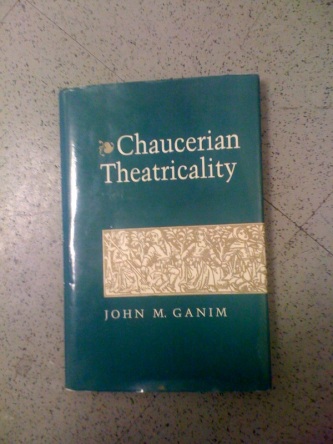So there you have it, today was sort of boring. I sat at the desk waiting to be sent out on assignment, and it seemed little was coming my way. Until about 4:45, an hour before my shift ends, that is, when I was told to look into a pedestrian hit by a car close to the office. (Bad timing–a bunch of Spec stuff came up around then). It was outside of a huge event concerning food, so it would have been a big deal, but a kindly hot dog vendor told me that a car hit a biker—he suggested a food delivery boy was hit—but both had left shortly after the collision. Meaning no big deal. So there went the day. I hate that I’m forced to connect the dots this way, but no injury, no byline. Which is good. (The no injury part). Then I went to dinner and a movie with a friend, which was relaxing.
Some more thoughts on Saturday: It took me awhile to get into the head of Henry Perowne. McEwan tells the story of this neurosurgeon’s day—from inside Perowne’s head, but not in first person—in about 300 pages. It took me about 50 slow pages. Perhaps these are the pages that caused a friend to recommend it to me as a “project book.” But once you get into the rhythms and neuroses of Perowne, you internalize his thinking, his speech, and the rest of the book flows organically. You find yourself, as ignorant to the field as you may be, making psychological observations of adversaries along with the protagonist—this alone, the pull towards empathy, is narrative magic. Perowne often describes actions such as swimming, surgery, and sex as enjoyable because each is an entry into a different, unique medium. Past the beginning, the book felt like that. An immersion in a different medium.
By the time I finished, I was riveted. The pacing is brilliant. Pages are only minutes of Perowne’s life, but the flow works. Little drags. Mostly, though, I was impressed at the depth of character we get. McEwan spends pages on minutes by describing the feelings and memories events conjure up for Perowne, leaving us with a rich portrait of a neurosurgeon. This depth weaves narrative with Perowne’s politics and philosophy. In few words, McEwan/Perowne sums up the spirit of entire generations, and then seamlessly leaps back into a dialogue with his teenage son Theo about the day’s news.
But then I realized, this may be a copout. Based on what I’ve read about the author, Perowne’s views—e.g. on a more superficial level, the pleasure he takes while in the operating studio—seem to align with McEwan’s. Perhaps this novel, much like a book I wrote a paper on recently, is simply McEwan’s philosophical treatise, with bits and shreds of truisms wrapped up and tied in a neat narrative bow in the form of Perowne.
Either way, still a good read. Onward.
Tags: books, Ian McEwan, reading, Saturday, work

Talk of the Town